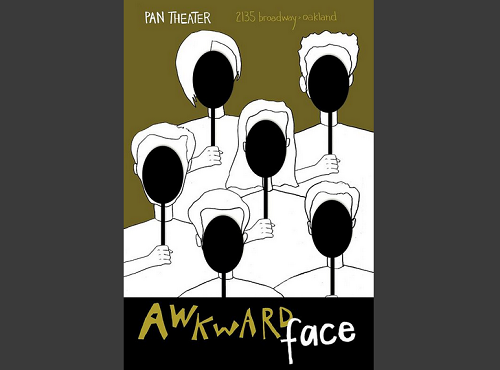What Script-Writers Can Learn from Improv (Part Two!)

David Alger, of the Pan Theater in Oakland, returns to share more tips for beginners in improv, which are super applicable for script-writers, too! (A quick update on Operation: Liberate Laughter, Animal Control says the space we were going to repurpose for our first show isn't "safe", and that the raccoons there have "mutated", but you know what? I think what they meant is "isn't safe for HUMOR", and "mutated to develop FUNNY BONES". Whoo, the show is back on!)
Yesterday's tips are here.
5. Be Specific - Provide Details!
Details are the lifeblood of moving a scene forward. Each detail provides clues to what is important. Details help provide beat objectives and flesh out characters.
Example One: You're the best brain surgeon in all of West Valley, Mark. That's why I chose you to operate on mom.
Rather than:
You're the best doctor in this town, which is why I chose you.[[MORE]]
6. Change, Change, Change!
Improv is about character change. The characters in a scene must experience some type of change for the scene to be interesting.
Characters need to go on journeys, be altered by revelations, experience the ramifications of their choices and be moved by emotional moments.
We go to the theater to see the unusual days characters have, not the everyday moments of stasis and stagnation.
7. For serious and emotional scenes, focus on characters and relationships.
A long form improv set should contain a variety of scenes. Some scenes will be emotional, some will be tense, and some should be funny.
The easiest way to make a scene serious is by focusing on the relationship of the characters on the stage.
Other ways to make a scene dramatic is to hold a moment, use the silence, and focus on the shifting emotional points that emerge as a scene unfolds.
8. For humor, commit and take choices to the nth degree or focus on actions/objects.
A good long form set is balanced. Shakespeare knew that too much pathos was wearing on the audience; hence, he had minor characters in humorous scenes such as the drunken porter in Macbeth.
To create humor in improv, commit to choices to the nth degree or focus on actions and objects. Another way to create humor without doing so at the expense of the scene is to take every offer literally.
Try it on your own!
It is easier if you decide on a who, what and where first. The what is the idea of a scene such as a first date, winning money, or opportunity. The who is who the characters are - including names and their relationships, and the where is the location.
Try coming up with your own who, what and where, then write or say some dialogue out loud for both parts, or do it with a friend. Remember, anything said becomes a fact.
Have fun, use your imagination, improvise…
- David Alger, Producing Director at Pan Theater
Image courtesy of Pan Theater
Chris Baty's Blog
- Chris Baty's profile
- 63 followers



